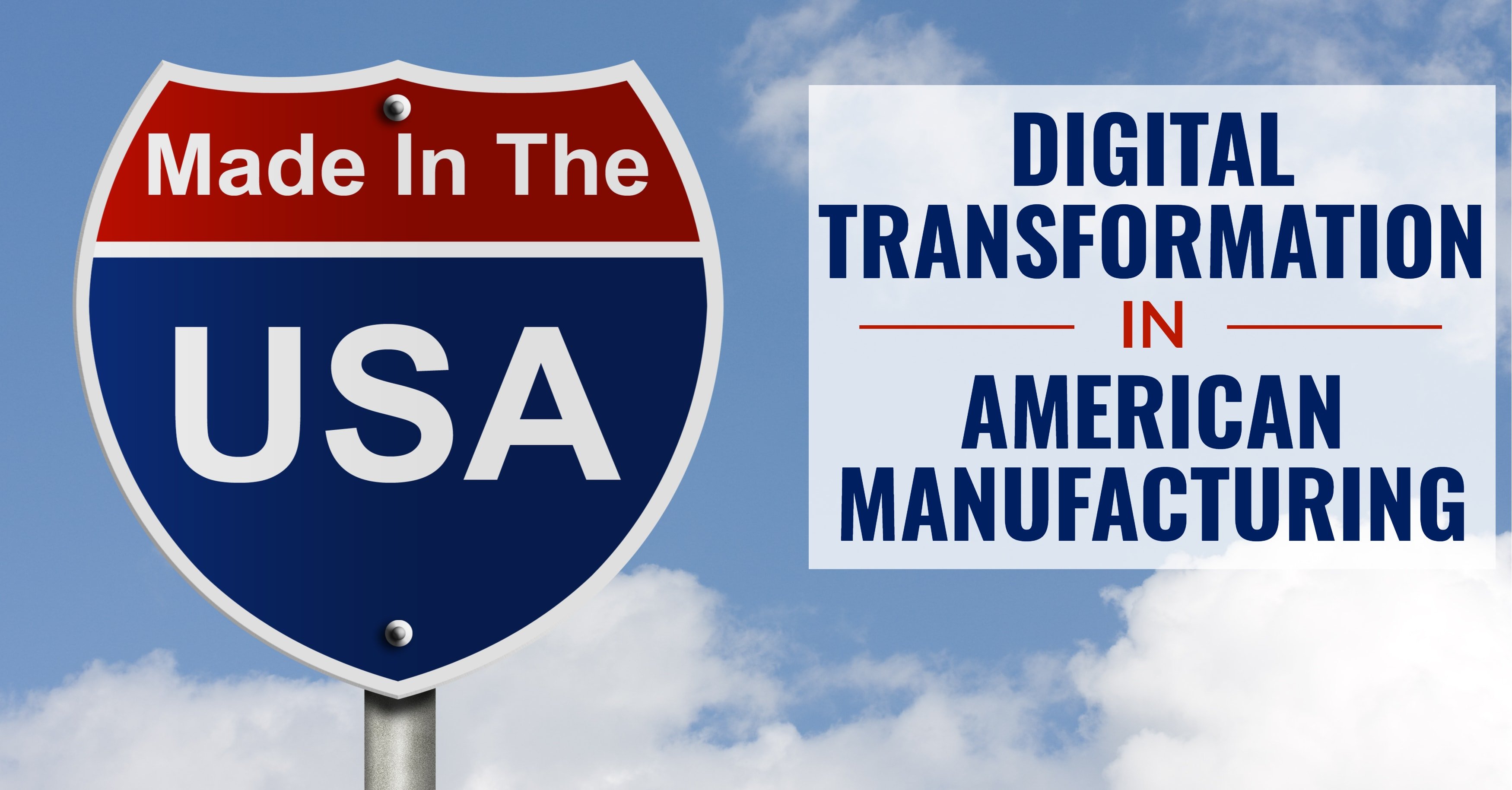ERP Drives American Manufacturing Growth
Since the Great Recession, American manufacturing has bounced back, giving us more products made in the U.S.A. A strong economy is opening new opportunities to U.S. manufacturers, but unfortunately, there’s another side to the story. Amidst manufacturing growth are the looming concerns of trade wars, strict regulations and an aging workforce.
At this critical moment in manufacturing, businesses should consider turning to digital transformation. Advances in enterprise technology can streamline processes and deepen insights, giving companies the support to weather an unpredictable marketplace and capitalize on opportunities for growth. Enterprise resource planning (ERP) software sets the foundation for manufacturing digital transformation. By tying together your data and processes, ERP provides full control over operations. Below, we explain how ERP drives digital transformation in American manufacturing.
Increase Connectivity
U.S. manufacturers are up against some major challenges. As the workforce ages, manufacturers are struggling to entice millennials to join their businesses. Modern consumers have no tolerance for missed orders and poor service. Supply chains have become increasingly complex. Managing these demands requires the formation of a tight-knit, efficient enterprise. As manufacturing becomes more complicated, technology is growing more sophisticated to simplify operations and increase connectivity.
ERP software serves as the glue holding your data, processes, equipment and workforce together. Manufacturers are increasingly investing in the Internet of Things (IoT), using sensors, barcodes and RFID tags to monitor products and machines. Data from these sensors can instantly sync into your ERP solution, sending you real-time alerts about equipment performance, damaged goods and other issues. Additionally, ERP vendors are adding embedded artificial intelligence (AI) and analytics tools to transform big data into actionable insights and predictions. Users can access this information on the go through ERP mobile capabilities.
Using ERP to create a more connected enterprise can help you tackle manufacturing problems. Millennials are part of a tech-savvy, collaborative generation, making the advanced technology and connectivity facilitated by ERP major draws to manufacturing positions. The insights generated by your software enable you to keep tabs on locations and processes throughout your supply chain, so you can quickly respond to problems and give customers top-notch service.
Mitigate Risks
There’s no way to totally eradicate risks from your business, but there are certainly methods to protect your organization against manufacturing hazards. One of those methods is improving enterprise visibility. ERP software provides a central hub for data, giving you valuable information at your fingertips.
These insights can help you maintain supply chain reliability. For example, you can track inventory and demand in real time to ensure you have the right quantity of materials and products to meet customer needs without creating waste. One study of U.S. manufacturers even found that 67% of respondents considered ERP effective at managing the impact of tariffs through providing supply chain visibility and job costing. Your ERP will also analyze supplier performance to ensure you’re working with the right people to maintain quality and efficiency.
Additionally, ERP software automates processes to reduce human error and improve safety. Manual data entry wastes time and increases the chances of letting inaccurate data get into your system. Automatically updating information in a single solution helps businesses maintain data integrity. Using ERP and robotics to automate more dangerous tasks on the shop floor can also increase the safety of your workers. Automation will give employees more time to solve issues and make strategic improvements.
Comply with Regulations
In 2018, 50% of North American CEOs reported over-regulation as a top business concern. ERP can ease the stress of manufacturing compliance. Tracking production from cradle to grave, your software maintains detailed audits and ensures materials and processes are in line with mandates. Real-time alerts will notify users when non-compliance or quality issues occur. With ERP, manufacturers enjoy a clear view of production performance and quality at their fingertips.
Epicor ERP is particularly adept in helping manufacturers with compliance. Epicor designs its solutions to adhere to NAFTA, IAS, IFRS and a wide range of industry standards. Additionally, it allows users to check for Certificates of Compliance when receiving materials and shipping products. This makes it easier for businesses to manage documentation and steer clear of hefty fines.
Wrap Up
U.S. manufacturers have their work cut out for them. During a period of growth and uncertainty, manufacturers need ERP software to keep everything together. For over 45 years, Epicor has provided leading ERP solutions designed with manufacturers and distributors in mind. Epicor ERP houses all the tools you need to increase connectivity, mitigate risks and comply with regulations in one place.
At Datix, our certified consultants will ensure you’re making the most of your ERP solution. We’re an Epicor Gold Partner with decades of experience in manufacturing and distribution. From start to finish, we provide scalable software solutions and services to get you set for business growth.
Let Datix be your partner in digital transformation. Learn more about Epicor by contacting Datix today!
{{cta(‘770c1544-d87d-4acb-9fc4-7a25e1385094′,’justifycenter’)}}


